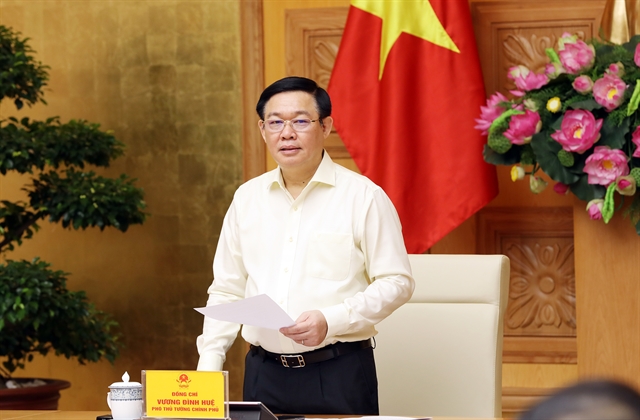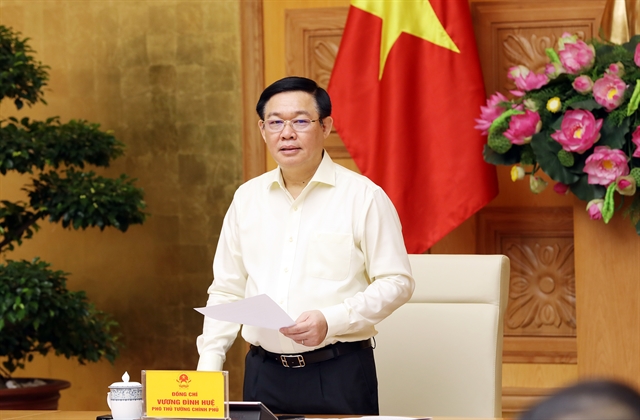[ad_1]

HÀ NỘI If there are no unexpected factors in the remaining months of the year, it is feasible to control the consumer price index (CPI) this year at a low level of 3.3-3.5 per cent, Deputy Prime Minister Vương Đình Huệ said on Friday.
During a meeting of the Government’s Steering Committee for Price Management to review the country’s price management in the third quarter of 2019 held in Hà Nội, Huệ said average consumer price index in the first nine months of 2019 was estimated to expand by some 2.52 per cent against the same period last year.
Huệ, who is head of the committee, said the average CPI of 2.52 per cent in the first nine months of 2019 was the lowest level in the past three years. The rise in 2017 and 2018 was 3.79 per cent and 3.57 per cent, respectively.
The low monthly CPI rise in the third quarter has continued to ease authorities in controlling inflation for the whole year according to the targets set by the National Assembly, Huệ said, adding the low hike would also be a condition for the Government to consider the price adjustment of some public services according to the Government’s approved roadmap.
Nguyễn Anh Tuấn, Director of the Ministry of Finance’s Price Management Department and head of the committee’s assistant group, said during the first nine months of 2019, prices of goods and services rose significantly in February before inching down in March and June. The prices then gradually increased again from July to September.
Despite still rising, the monthly increasing rate of the CPI was low in the third quarter. The CPI in July expanded by only 0.18 per cent compared with June. The rate in August was 0.28 per cent and is estimated at some 0.4-0.6 per cent in September.
According to Tuấn, the main reasons for reducing the pressure on the CPI were the decline in food prices due to the abundant domestic supply and the decrease in the demand for rice imports in the world market.
Besides, prices of petrol, oil and gas in the domestic market tended to decrease in the third quarter, contributing to easing the pressure on CPI.
In addition, Tuấn said, the low CPI hike was also thanks to great efforts made by ministries and sectors in monitoring, evaluating and forecasting the movements of domestic and foreign market prices of essential commodities in order to have timely policy responses, contributing to stabilising market sentiment and controlling inflation.
The ministries and agencies were successful in proactively calculating and adjusting the prices of essential commodities according to the Government’s roadmap and the Steering Committee’s scenario set out for each quarter, Tuấn said.
To continually better control inflation in the remaining months of the year, Deputy PM Huệ required ministries and sectors to closely monitor supply and demand movements of goods and services, especially some essential goods, as well as proactively prepare commodity supply sources at the end of the year for holidays such as the New Year.
The Ministry of Industry and Trade must proactively distribute goods sources in the context of commercial competition among big countries. The ministry also has to take measures to boost exports and control imports to ensure not only the CPI target but also balance of payment, balance of capital and current account balance, Huệ said.
Huệ directed the State Bank of Việt Nam to continually manage the monetary policy actively and flexibly, and co-ordinate the fiscal policy with other macro policies to control core inflation at some 1.9 per cent.
He also instructed the management of prices of some essential commodities including electricity, requiring competent authorities to make public the input costs of electricity before November this year.
As for the price management next year, Huệ said the Government would propose the National Assembly to control the CPI rise at 4 per cent. VNS
[ad_2]
Source link
